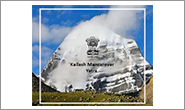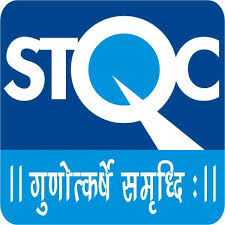2nd India-China Think-Tanks Forum Beijing June 24-25, 2017:Opening Remarks by Ambassador Nalin Surie, Director General, ICWA
06/24/2017
2nd India-China Think-Tanks Forum Beijing June 24-25,2017
OpeningRemarks by Ambassador Nalin Surie, DirectorGeneral, ICWA
My delegation and I are very pleased tobe in Beijing for the second meeting of the India-China Think Tanks Forum. The second meeting is being held in thebackdrop of the successful first meeting held in New Delhi last December. The theme on that occasion was ‘Towards aCloser India-China Developmental Partnership’. On this occasion, we have a theme that is further fleshed out and wewill be discussing issues pertaining to India-China Strategic Cooperation andDevelopmental Partnership. To my mind,the former is inherently dependent on the latter.
We derive our mandate from an MOU signedin May 2015 between our two authorities. The objective is to enhance exchanges in the field of area studies,security, economy, strategic thought and demographics. Further, we are here to deliberate on contemporaryissues of regional and global significance.
Our agenda for the second forum isconsistent with the mandate we have and we will be covering areas ranging fromstrategic communication to bilateral trade and investment cooperation; tocooperation in agriculture, to people-to-people exchanges, to ICT andinnovation, and green and sustainable development. To do justice to this agenda, we have with usa high powered delegation of seventeen experts/scholars from eleven IndianThink Tanks and institutions. They areall specialists who have made significant contributions in their respectiveareas of specialization. It is,therefore our expectation that we will have a very meaningful exchange ofviews.
This second forum is being held in thebackdrop of a very cordial and positive meeting on 09 June 2017 between PrimeMinister Modi and President Xi Jinping in Astana on the sidelines of the SCOSummit. We greatly appreciate China’ssupport for our membership of this organization. Our inclusion will help in strengthening itsability to fulfill its objectives.
It is pertinent to recall that duringtheir discussions, our two leaders agreed that there should be more Think Tankexchanges. Their discussions, of course,were much more broad based and included cooperation on trade issues, investmentissues, some connectivity issues, cooperation in counter terrorism, securitycooperation, defence exchanges, establishment of industrial parks, cooperationin railways and culture.
Our leaders also agreed that at a time ofglobal uncertainty, complexity and change, India-China relations are a factorof stability and that we must work together more closely. This is particularly important as the worldbecomes more multipolar. This willrequire India and China to ensure the steady development of theirbilateral relations in the pursuit of their common goal of achieving peace,stability and their comprehensive development.
India and China are the two most populouscountries in the world. Both are growingrapidly and are expected to play a much greater role in internationalaffairs. Our developmental and societalproblems are very similar. We have avariety of reasons that require us to cooperate and collaborate rather thanenter into needless competition or rivalry. We have differences. It is,however, necessary to ensure that these do not become disputes but are insteadconverted into opportunities for even greater cooperation. Our leaders are of the opinion that we needto address each other’s concern very seriously. We need to take heed of this.
Later this year, China will hold the 19th Party Congress. This is an event ofconsiderable significance not only for our friends in China but also for Asiaand the world community in general. Welook forward to understanding, from the decisions taken at that Party Congress,the direction in which China will proceed over the next five years.
Many of the Chinese Think Tanksrepresented at this Forum will, undoubtedly, have made contributions to whatwill finally emerge as the decisions taken by the Congress. Your expectations regarding the directions offuture Chinese policies, both domestic, regional and international, would be ofgreat interest and use to us.
Last month, the Chinese Academy of SocialSciences commemorated the 40th Anniversary of itsestablishment. CASS is now rated as China’sbiggest and arguably most important Think Tank comprising of six academicdivisions and thirty nine institutes that cover all major areas of philosophyand social science. Please accept ourcongratulations on your 40th Anniversary. We have no doubt that CASS will, in the yearsahead, grow from strength to strength.
Before I conclude, may I take thisopportunity to thank CASS for the arrangements made for our programme in China,for our stay and for the very warm hospitality that we have received since ourarrival. We look forward to a productivedialogue that will contribute meaningfully to the deepening, development anddiversification of our bilateral relations and to the further strengthening ofour cooperation on regional and international issues.
The centre of gravity of the economic andgeo-strategic equilibrium continues to shift from West to the East and for the21st century to be the Asian century, collaboration and cooperationbetween India and China is vital.
Thank you





























